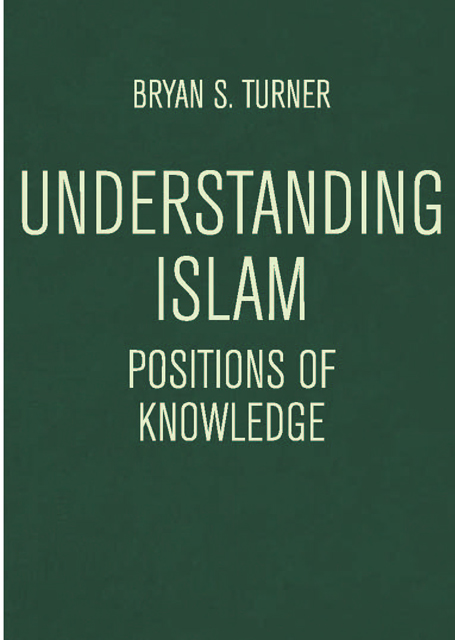Book contents
- Frontmatter
- Contents
- Acknowledgements
- Introduction: What is Understanding?
- 1 The Changing World of Islam
- 2 Insiders and Outsiders
- 3 The Rise of the Sociology of Islam
- 4 Postmodernism, Globalisation and Religion
- 5 Orientalism and Islam
- 6 Islamophobia
- 7 Feminism, Fertility and Piety
- 8 The Problems of Positionality
- 9 The Possibility of Dialogue
- Index
7 - Feminism, Fertility and Piety
Published online by Cambridge University Press: 13 April 2023
- Frontmatter
- Contents
- Acknowledgements
- Introduction: What is Understanding?
- 1 The Changing World of Islam
- 2 Insiders and Outsiders
- 3 The Rise of the Sociology of Islam
- 4 Postmodernism, Globalisation and Religion
- 5 Orientalism and Islam
- 6 Islamophobia
- 7 Feminism, Fertility and Piety
- 8 The Problems of Positionality
- 9 The Possibility of Dialogue
- Index
Summary
Introduction: Unsettled Controversies
Despite decades of research and debate regarding the status of women in Islam generally and the specific position of Muslim women in Western liberal democracies, there is no settled or commanding interpretation about these issues. Given the development of feminism in the West over the last century or more, there is a clear feminist view that Islam is patriarchal and that Muslim women are subordinated and imprisoned in religious traditions. Then there is a liberal argument that the practice of compulsory veiling offends Western notions of freedom of choice. There is yet another argument regarding the behaviour of citizens who must not have their faces covered in the public domain. The face of the citizen should be visible to all citizens in public places. Furthermore, there are religious and constitutional arguments that the state and religion should remain separate, and hence there must be no legislation to control religious buildings, attire or practices. In this argument, we can include state interference in such matters as circumcision where many liberals are critical of both Jewish and Islamic practice. The return of the hijab with the return of the Taliban to Kabul may only confirm the worst fears of liberal feminists in the West. But Afghanistan is not Indonesia, where Sufism has been a dominant factor in the spread of Islam. Indonesia is the largest Muslim community in the world and its diverse character is perhaps best represented by the progressive Nahdlatu Ulama with a membership of between 60 and 90 million followers, providing religious services, health care, poverty relief and education. Founded in 1926, it preaches inclusion and recognises the religious and cultural diversity of Indonesia. The Indonesian educational system from the 1920s has promoted the inclusion and promotion of girls who often outnumber boys in schools (Hefner 2009). However, there is evidence that modern-day Indonesia is becoming more conservative.
Despite decades of research, the actual relationships between gender, patriarchy, religion and level of economic development remain under-researched and theoretically unclear (Lussier and Fish 2016). Many of these dilemmas have been perfectly captured in Martha Nussbaum’s ‘capabilities approach’.
- Type
- Chapter
- Information
- Understanding IslamPositions of Knowledge, pp. 132 - 150Publisher: Edinburgh University PressPrint publication year: 2023



